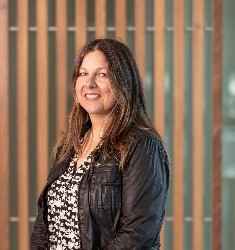
Clare is a PhD student researching the evolution and transferability of the ‘Housing First’ programme in Aotearoa. The study is part of a five-year research programme on the delivery and outcomes achieved by using Housing First in Aotearoa, funded by the Ministry of Business, Innovation & Employment. He Kāinga Oranga - Housing and Health Research Programme has partnered with the People’s Project and the University of Waikato to establish the programme.
The transferability of Housing First as a concept and programme requires a statement of principles and case studies for its initial implementation. The team used qualitative case study methodology to describe and compare Housing First’s implementation in Hamilton, Auckland, and Wellington. The topic is explored from the perspective of service providers implementing Housing First programmes and key people working in government and community organisations with a role in addressing homelessness. Results have been analysed in relation to Te Tiriti o Waitangi, Aotearoa’s macro and meso level, policy and service delivery environment, and progress to address homelessness. Study findings are compared with findings from Housing First implementations internationally.
Clare has research interests in homelessness, housing adequacy and equity, emergency and temporary housing issues, and effective ways to address and prevent homelessness. She previously spent 13 years as a public health advisor with Wellington Regional Public Health, specialising in housing and homelessness. She was a founding member and co-chair of the New Zealand Coalition to End Homelessness, and is the Vice Chair of Dwell Housing Trust. She has had 16 years of governance experience in the Community Housing sector. Clare convenes a postgraduate Public Health course on Society, Health, and Health Promotion.
Clare’s Master of Public Health in 2013 studied boarding houses in the Wellington region. See: Anyone can live in a boarding house, can’t they? The advantages and disadvantages of boarding houses